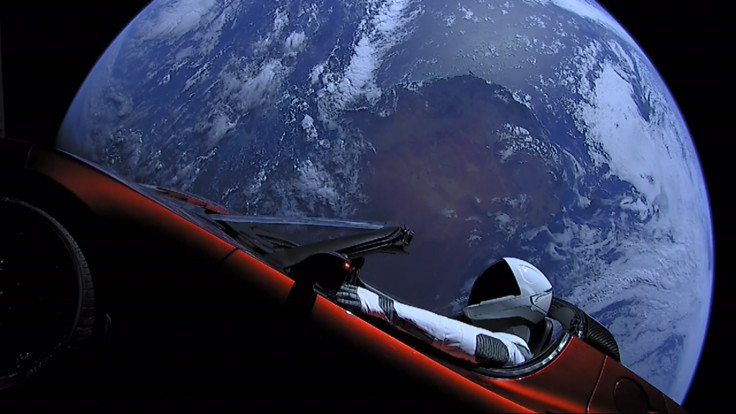SpaceX Mars Plans for 1,000 Spaceships to Deliver First Colonists Within 7 to 9 Years
Musk eyes Mars in 7-9 years, but SpaceX also targets the Moon

SpaceX CEO Elon Musk has set an ambitious goal for his astronautics company, aiming for a crewed landing on Mars within the next 7-9 months. He emphasises the critical need to accelerate the Mars mission timeline once the initial landing capability is established.
"The first Starship that will land on Mars, which obviously would not have people at first, I think it's probably within about five years. And then we would probably launch several ships and confirm that they can land on Mars," Musk said.
During a conversation with Nicolai Tangen, CEO of Norway's Norges Bank Investment Management, the tech mogul revealed his plan to send people to the moon. He noted that this lunar endeavour would probably precede the crewed Mars mission.
Elon Musk Sets A Timeline for Crewed Mars Mission
"We'll also be doing the moon simultaneously with that. I think we'll get people back to the Moon I should say within five years," Musk said. In February, a Houston-based company made history by landing the first American spacecraft on the moon in over five decades.
The tech mogul believes SpaceX will be able to land uncrewed ships on Mars within five years. Next, Musk says, the company will focus on ramping production and refining the booster and Starship design.
This would pave the way for the first crewed mission to Mars, which Musk believes is achievable within a seven—to nine-year timeframe. "And from there, we need to increase rapidly," he added.
“If we can establish a Mars colony, we can almost certainly colonize the whole Solar System, because we’ll have created a strong economic forcing function for the improvement of space travel.” - Elon Musk pic.twitter.com/hO1t4qGn8m
— wiggle (@w1991e) April 16, 2024
Musk's vision extends beyond the initial landing. The 52-year-old business magnate envisions a future with regular, seasonal departures of thousands of spaceships to Mars. "We need massive numbers of ships going," Musk said.
He pointed out that Earth and Mars align in the same solar system quadrant only about every two years, for a window of roughly six months. This alignment impacts travel efficiency. Ideally, missions to Mars would be launched within a specific two-month window every 26 months, Musk explained.
According to Musk, these launch windows would present a truly awe-inspiring sight. Imagine a fleet of a thousand spaceships departing for Mars in unison, reminiscent of "Battlestar Galactica." He noted that they have the technology required to make this come true.
Can We Achieve a Million-Person Mars Colony?
"I think we have all the tech. We already know all the technology that's necessary for that (to go to Mars). We just need to build. So, no new physics is needed for this," he said. Musk, who has previously outlined his vision of transporting 1 million people to Mars, reiterated the importance of establishing humanity as a multi-planetary species.
He believes this goal is crucial for safeguarding the future of human consciousness. To maximise the long-term survival of human consciousness, Musk believes it is imperative to become a multi-planetary species.
Others: Spending Years designing and Building their dream house.
— Stephen Musk (Fan) (@Iam_StephenMusk) April 11, 2024
Elon Musk: "What's more important Mars or a house?, I am like, Mars" pic.twitter.com/zqPucnS0Ux
According to Musk, spreading humanity across planets offers a greater chance for our consciousness to endure than remaining confined to Earth. The Tesla boss said humanity will remain vulnerable if confined to a single planet.
Musk noted that a global thermonuclear war or a gradual societal decline could spell our doom at any time. He emphasises that human existence on Earth is ultimately finite. He recommends space exploration and multi-planetary habitation as a means to ensure humanity's long-term survival.
In his vision, Mars represents just the first step, with the potential for humans to call numerous planets home one day. "Our civilisation may not die with a bang; it may die with a whimper," Musk predicted.
"Just gradually falling into obsolescence. But if we're multiplanet species, then we've got two planets. And they can support each other, and we can go beyond two planets ultimately to the moons of Jupiter, the beyond, the outer parts of the solar system, and to other star systems."
"So this tiny candle of consciousness that we have in this vast darkness can be extended and amplified. And we're just far more likely for consciousness to survive if we are multiplanet species."
© Copyright IBTimes 2025. All rights reserved.





















